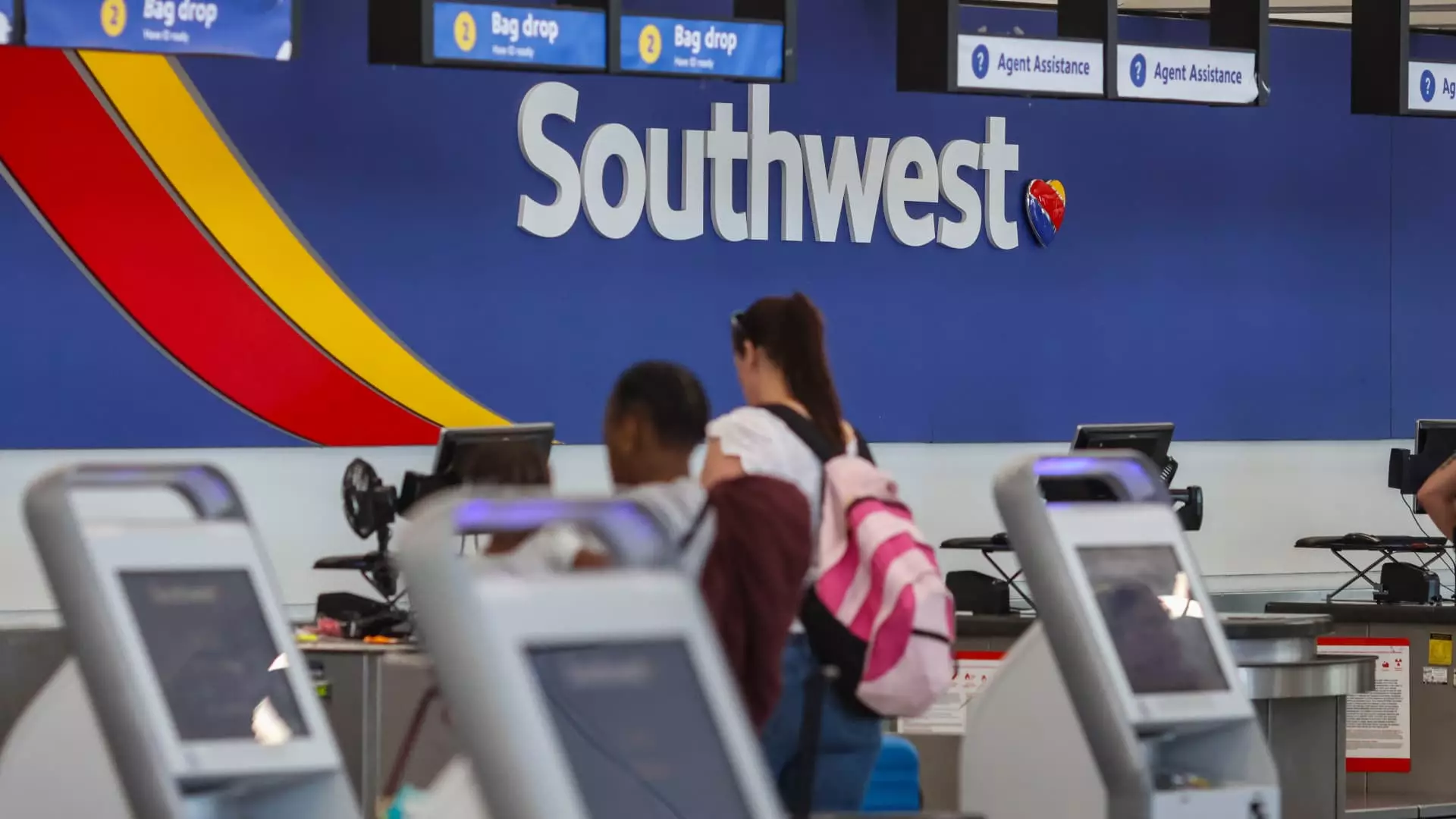In a significant reconfiguration of its operational strategy, Southwest Airlines plans to streamline its services in Atlanta, effectively cutting more than 300 positions for pilots and flight attendants. This decision, outlined in an internal memo acquired by CNBC, signifies a departure from the airline’s previous commitment to maintaining its crew base in the region. Although the cutbacks are not framed as layoffs, affected employees will face a new reality where they must bid for positions in alternative cities. This measure is a clear reflection of the mounting pressures from financial stakeholders and changing market dynamics, ultimately aiming to reposition Southwest toward profitability.
The decision to reduce staffing in Atlanta—a hub served by 18 gates—means a withdrawal to just 11 gates and a drastic reduction in the number of cities serviced, plummeting from 37 to a mere 21 by April 2025. Such a move illustrates the fundamental shift Southwest is undertaking, prompted by economic pressures and the need to adapt to fluctuating consumer demands. Amidst these cuts, Southwest stands firm in its assertion that these measures do not reflect the quality of service provided by its employees, emphasizing their ongoing commitment to customer satisfaction.
The looming shadow of activist investors, particularly Elliott Investment Management, has cast a discernible influence over Southwest’s decision-making process. As airlines continue to grapple with the evolving landscape of travel demand—particularly in post-pandemic recovery—financial transparency and viability have become paramount. The upcoming investor day is set to lay bare Southwest’s broader strategy for cost reduction and revenue enhancement, likely aiming to reassure stakeholders that the airline is taking responsible steps to stabilize its financial footing and enhance operational efficiency.
It is essential to recognize the broader context in which these decisions are being made. The airline industry is seeing changing booking patterns and heightened competition, especially in oversaturated markets. Compounding these challenges is the supply issue stemming from delayed deliveries of Boeing’s 737 Max 7 aircraft, which further complicates fleet management and operational capacity.
Despite pulling back in Atlanta, Southwest is not retreating from growth opportunities entirely. The airline has announced plans to enhance its route offerings in Nashville, Tennessee, and introduce new overnight flights from various locations in Hawaii to Las Vegas and Phoenix, set to commence in April. This dual approach of scaling down in one area while expanding in another may well represent Southwest’s endeavor to balance costs against potential revenue sources effectively.
The recent uptick in service availability showcases Southwest’s ability to adapt to market demands and make calculated moves to optimize its network. The airline’s operational philosophy emphasizes flexibility and responsiveness, which will be crucial in reacting to ongoing shifts in consumer preferences. The decision to drop open seating and offer extra legroom on flights represents another strategic shift; a clear acknowledgment of the competitive landscape wherein customer experience remains paramount.
Future Prospects: Navigating Turbulent Waters
Southwest Airlines’ operations are not just defined by immediate decisions like the Atlanta service reductions; the future trajectory hinges on its ability to successfully implement these modifications while sustaining customer loyalty. The stakes are high in the highly competitive airline industry, and the actions taken in the coming months will illuminate whether Southwest can restore profitability and emerge resilient post-restructuring.
In essence, the airline stands at a crossroads. The challenges of adapting to a rapidly evolving environment demand not only strategic cuts but also innovation and a committed focus on customer engagement. As the industry inches towards recovery, the heart of Southwest’s strategy will likely rest on finding the balance between operational efficiency and service excellence. The forthcoming investor day promises insights into how Southwest plans to navigate these turbulent waters and reaffirm its commitment to offering competitive, customer-centered travel solutions while pursuing financial stability.

